#god peter capaldi is SO good did people like him when this was airing?????
Text
not me getting emotional about how much the doctor loves clara
#it’s such a specific kind of love i am frothing at the mouth#anyone who says platonic relationships aren’t as deep/intense as romantic relationships can eat dirt actually#i honestly do not remember eleven with clara… really at all#but twelve with her and his specific protectiveness and like#god peter capaldi is SO good did people like him when this was airing?????#they’ve got like. best friends with a little bit of father/daughter but also brother/sister and i’m so 😭😭#at the end of s9e8 when clara was like ‘u must’ve thought i was dead for a while how was that?’#& the doctor says ‘longest month of my life’ & clara says something about it being 5 minutes#and his delivery of ‘i’ll be the judge of time’ like sorry don’t mind mr#my chest hurts now because of that single sentence#he’s so lonely i love him omg i’m falling back in love with doctor who i genuinely did not expect this#b:personal#text post
6 notes
·
View notes
Text
Why I, as a Female, was anti-Female Doctor.
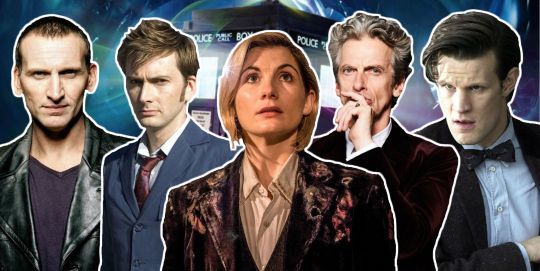
Disclaimer!!!! I have only viewed the modern Doctor Who and not the classic.
Okay.... What do I mean?
When Peter Capaldi was to leave DW, the internet exploded with people saying how the next doctor can’t be a white man. It has to be a female... or a poc. I, personally, didn’t want a female doctor and that feeling was cemented when an ex-campion actress stated that if they did not have a Female Doctor - it would officially be a snub. And that the reason I didn’t want a Female Doctor.
In my personal opinion, it is irrelevant whether the Doctor themselves is POC, white man or female - if the showrunner is still a ‘white’ (not racial but the systematic connotation of the word) man.
The insert of the Female Doctor wasn’t an artist or a writer’s desire to explore the intricacies of a Female Doctor - but publicity stunt to seem more.... ‘woke’. However, in my opinion, it means nothing to proclaim ‘wokeness’ when you do nothing else. When non-diverse writers write diversity it can go to two extremes. One, the character is a stereotype or caricature of the diverse identity, i.e sassy gay guy, emotional woman, or black person that says ‘damn’ or ‘helll no, gurlfriend’. Or two, which I believe is occurring with Doctor Who now, is that the character has no connection to their sexuality, gender or race, i.e they could have been played by a white straight man and it would have made no difference to the character.
This is not an attack on the actress who is currently playing The Doctor, as I believe others have wrongfully done so, I blame the writer. It seems that good episodes of the 13th Doctor era are those written by either women or POC. NOT SAYING WHITE MAN CAN’T WRITE. Dear God no - other writers (that are white male and not the showrunner) have written good episodes. What I am saying that there is more passion in the diverse stories then anything that showrunner has written - he has a majority of writing credits for episodes.
So, should there be a Female Doctor (or even a POC Doctor)? Yes! Should it be a publicity stunt to show that the corporation is ‘woke’ and not racist or sexist? No. Should the showrunner and writer’s room be more diverse. HELL YES!
I want a Female Doctor who... when the writer has a female story to tell and is not pressured into it. Saying that... Here’s my Fanfic!
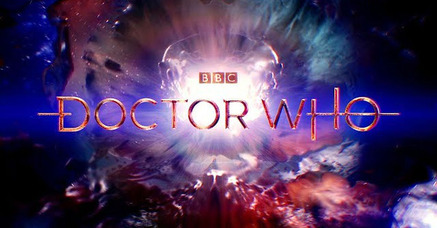
The 12th Doctor says his speech and begins to regenerate. CUT. Audience doesn’t see the 13th Doctor.
BBC releases to the public that the new doctor is White man (Richard Armitage - because he is pretty and I could google image him all day) and a companion (let’s say Eleanor Tomlinson). The first episode will air as a Christmas special.
Christmas Special: Wake Up.
The episode begins with the companion (Eve/Evie) being woken up by the Doctor in the Tardis with the words: “Wake up... It’s Christmas, Eve.” It seems the Doctor and Evie have been on plenty of adventures and have great rapport. Evie is very much the wide-eye bubbly companion. The plot begins when the duo discover that the time lord wish to destroy (I’m making stuff up now) this timeline (modern Doctor Who)/universe and instead have only the parallel universe. The Doctor tells Evie it is because the Time Lord believe The Doctor is an abomination (continuing to regenerate and mess with history and future events). In order to save the Doctor, Evie is about to press a button - the Doc said not to press because it would blow up Gallifrey - but can’t kill the innocents. Evie cries, thinking the Doctor is dead. The Doctor, however, gets up and lifts Evie up. “Do you care for me so little?” She is shocked, tears still running down her cheeks. He goes over and presses the button. Evie screams as she sees the planet blow up. The Doctors towards her and places his fingers on her temples. She closes her eyes and faints. Cut black. The episode ends with Evie being woken up by the Doctor in the Tardis with the words: “Wake up... It’s Christmas, Eve.” End.
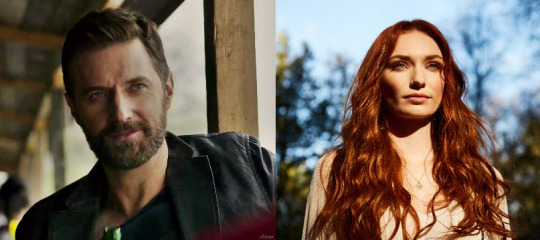
Dah dah daaaaa.
Okay, so here is my vision (hehe). The Master (omg Richard Armitage playing a tortured bad guy... yum) has brainwashed the Doctor to believe she is human and a companion to him as the Doctor. All the Christmas specials (3-4) will focus the Master trying to recreate the Doctor/Companion role which would provide as a great deconstruction as a writer/audience. The Doctor will slowly begin to realises that she is being manipulated and ‘gaslighted’ by the Master and that she is the one that controls the TARDIS and not him. Truman Show meets Groundhog Day.
The series would be a flash forward with the Doctor (after she has escaped from the Master) becoming jaded after her experience and not trusting easily - but hiding that underneath a happy and carefree demeanour - like their previous incarnations with the Time War etc. So the audience is wondering what happened in her past and are therefore excited for the holiday specials. The actress playing the Doctor should have red hair. Why? Because, so when old friends and people who know the Doctor as male see the new Doctor as a women - they would be shock and a cute moment can happen when the Doctor believes it because they finally have red hair (reoccurring joke). This kind of normalises the gender of the Doctor. And then when she is regenerated into a women again - the doctor can be the one making a huge deal she’s a woman, while it is normal for everyone else.
Episode One: Along with the monster of the week, the first episode would focus on the Doctor in 1591 and her having a connection with a woman who is being abused by her husband (Maria Nagaya) creating a paralell between her and the Master. The Doctor, on request of Maria gives Maria’s eight year old son, who happened to be stabbed, her regeneration energy. The Doctor realises she saved Dmitrii Ivanovich. After being rescued by the Doctor, Dmitrii wants to travel with her. Maria forbids it as Dmitrii will become Tsar. The Doctor tells him to go get something and they would head off together. But when he leaves, the Doctor goes into her Tardis and leaves.
Episode Two: Present day - A young high school girl (Asian) begins writing a letter. The school gets a new teacher who only goes by the Doctor. Teachers are being possessed by aliens and the Doctor and Yuri. The Doctor makes it clear to Yuri that she works alone and Yuri says she has no interest in spending with the Doctor, but wants to help. Doctor finds Yuri’s goodbye note, but puts it back. They save the day and the Doctor is about to leave. They are on the roof of the school and the Tardis disappears. Yuri goes closer to the edge, but the Tardis reappears. The Doctor offers a one time deal. Come with her and spend a lifetime in a moment. Yuri agrees.

The rest of the series deals with
Yuri’s depression and awareness of mental health.
Yuri and Doctor having an awesome female friendship.
Doctor’s PTSD from her experience with the Master and opening up about it - this would be a metaphor about women in toxic relationships or abused victims.
The Doctor meeting Dmitrii over and over - explaining the four deaths of Dmitrii with timelord regenerating ‘magic’ - a little romance with him and the Doc. And Dmitrii becoming a companion.
A nice juxtaposition between Yuri who wants to die and Dmitrii who wants to live (but keeps dying), and the Doctor who can never die but has to watch others die around her.
The Master showing up (in future seasons).
Visiting more historical places that is not sooo Anglophone.
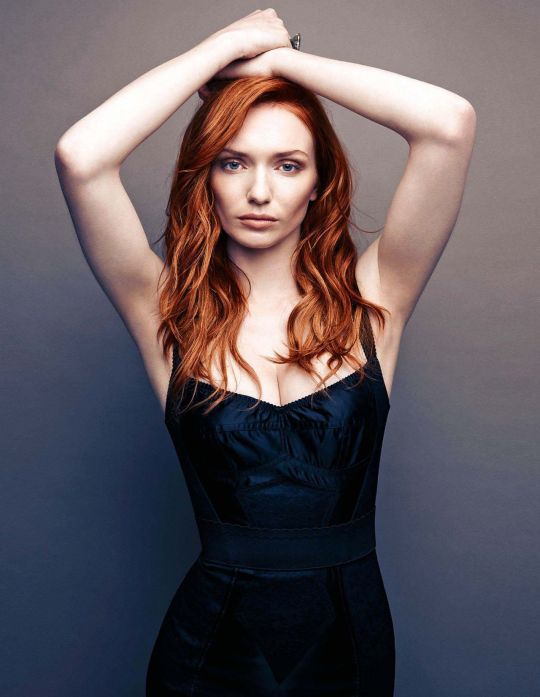
But yeah...
So my issue wasn’t with a female doctor. It was with a female doctor being written it my a male writer. I’m not saying that male writers can’t write female characters OR that my fanfic was good (cause it isn’t) - it’s just.. why not have women tell women stories?
2 notes
·
View notes
Text
The Woman Who Fell To Earth - Doctor Who blog (Change, my dear. And it seems not a moment too soon)
(SPOILER WARNING: The following is an in-depth critical analysis. If you haven’t seen this episode yet, you may want to before reading this review)

Never before have I gone into a Doctor Who episode with such a mixture of excitement and dread as I did with The Woman Who Fell To Earth. On the one hand we’ve finally got a female Doctor, something most Whovians have been waiting decades for, but on the other hand she’s being written by Chris Chibnall, a writer who (and let’s be generous here) has never exactly managed to win me over in the past. His past Doctor Who episodes were often derivative, stupid and poorly written and while yes he did create Broadchurch (a show that people assure me is good, but I still have little to no interest in watching), he was also the showrunner of the god awful spinoff Torchwood, which was essentially Doctor Who’s Suicide Squad.
So yeah, the thought of him sitting in the driver’s seat and at such a crucial moment in Doctor Who’s long history didn’t exactly get me hyped for the new series and if I’m honest, come Sunday 7th October, I was bracing myself for the worst.
Then the most pleasant of surprises. The Woman Who Fell To Earth turned out to be really, really good. I’m actually gobsmacked by how much I enjoyed this episode. I never thought I’d see the day where I’d be praising a Chibnall episode, but here we are.
I think one of the reasons why I enjoyed this episode so much is because it feels like all the aspects that annoyed me about RTD and Moffat’s respective eras have been sheared away. There’s no convoluted plots. No dangling arcs. No forced whimsy. No smart arse dialogue or pretentious speeches. In fact this had a lot more in common with a classic series story in terms of its pacing and scale. It’s not some global threat where everyone is dashing about like headless chickens on speed. The threat is contained to one town in Northern England where only a handful of people are in danger. Even the music has mercifully been restrained. While I do have a fondness for Murray Gold’s work on Doctor Who, his music often had a tendency to go too overboard, bombarding the senses and drowning the audience in slush. New composer Segun Akinola offers a much more subtle and moving score. It enhances the action and certain emotional moments without bashing you over the head and, crucially, Akinola knows when to shut up and let the actors carry the scene.
I must say it’s such a relief to see some humanity injected back into Doctor Who again. After years of convoluted, timey wimey Moffat nonsense, Chibnall has had the good sense to bring everything back to basics. It’s not about the aliens, the special effects, the exotic locations or the overly pretentious plots that require a fucking flow chart in order to make sense of them. It’s all about the characters. And what wonderful characters they are. Ensemble casts rarely work on Doctor Who, but I have to say I really like this cast. Out of all the new companions, Ryan is probably my favourite. Tosin Cole gives a really good performance and I really like how he’s written. In particular I like how the episode portrays his dyspraxia. The way New Who has handled things like disability and mental health in the past has left a lot to be desired, but here Chibnall gets it just right. He never makes a big thing out of it and the episode never comes across as patronising or condescending. It’s treated like any other character trait, which is exactly how it should be.
Mandip Gill is also good as Yasmin Khan, a police officer who feels like she’s not getting the most out of her life or career. She reminds me slightly of Rose Tyler, but unlike Rose, Yasmin is more proactive. She doesn’t sit around waiting for something to happen. She pursues new opportunities when they come up and gets frustrated when someone puts a wall in front of her. It’ll be interesting to see how she’ll adapt to time travel over the course of the series.
And then there’s Graham, played by Bradley Walsh. To all my non-British readers, let me give you a quick education on the wonders that is Mr. Walsh. He’s one of our most versatile performers. He’s been a footballer, a comedian, an actor and a gameshow host. He’s an incredibly funny man as well as a great dramatic performer. Having seen him in Law & Order UK, I knew he’d be perfect and he didn’t disappoint. There’s a weariness to him that’s incredibly charming and likeable, but then he’s able to go from comedic to emotional at the drop of a hat. The eulogy he gives at Grace’s funeral was incredibly powerful and moving, as are the moments where he tries to bond with Ryan, who’s clearly sceptical of any kind of father figure in his life due to how unreliable his dad is. Both Graham and Ryan are the ones to keep a close eye on I think. Ryan in particular will be carrying a lot of baggage as the series progresses. His determination to ride a bike shows not only the pain he feels toward losing his Nan, but also the guilt. If he hadn’t lost his temper, chucked his bike down a cliff and then pressed the weird glowing shapes, none of this would have happened. He clearly feels he’s responsible for her death and I’m looking forward to seeing not only how he grows and moves on from that, but also how Graham will step up and help him, being the grandfather Ryan needs if not necessarily the one he wants.
It’s the characterisation that is The Woman Who Fell To Earth’s greatest strength. Not just the from the main cast, but the supporting characters too. Little moments like the old man telling his granddaughter he loves her before getting killed by the Stenza or the crane operator listening to self motivation tapes is what gives this episode more depth and soul. And then of course there’s Grace, played wonderfully by Sharon D. Clarke. I’m hard pressed to think of a single character from the Moffat era that I gave anything resembling a shit about, which is why it’s so remarkable that I’m able to care this much about Grace despite the short time we get to know her. She’s caring, supportive and energetic. She feels like the perfect companion for the Doctor and I would have loved to have seen her in the TARDIS with everyone else, which is what makes her death so heartbreaking. She’s not some random redshirt getting axed because the script requires more tension. She’s a three dimensional character we really like coming to a tragic end.
Okay. Okay. Let’s get to the main topic of conversation. How’s the new Doctor? Have the ‘feminazis’ ruined it? Is she swapping makeup tips with the Cybermen? Is she struggling to parallel park the TARDIS? Did she accidentally kill a whole species because it was her time of the month? (these are all things I’ve seriously heard butthurt fanboys say since Jodie Whittaker was cast and I think we can all agree it’s beyond pathetic). Well, quelle surprise, turns out the Doctor’s sex change didn’t jumpstart the SJW apocalypse after all. Who’d have thought women could be Doctors too? What a novel concept.
The minute she fell into the train, I was sold. Whereas Peter Capaldi took three whole series to finally come into his own (not that Capaldi is necessarily to blame for that. Blame the monkey at the fucking typewriter for that one), with Jodie Whittaker it’s instantaneous. She is the Doctor.
It helps that Chibnall largely dispenses with all the usual post-regeneration bullshit. With the fainting and gurning kept to a minimum, we can get on with actually learning about this new Doctor and I love what I’m seeing so far. She’s quick-witted, compassionate and quirky, but not to the point where it becomes annoying like Matt Smith’s often did (in my opinion. Tastes differ, obviously. I personally found Eleven to be unbearable at times). After the Twelfth Doctor, with his borderline misanthropy and his inability to even so much as blow his nose without a companion to hold his hand, Thirteen comes like a breath of fresh air.
One thing I especially like about her is her complete lack of arrogance and boring machismo that previous New Who Doctors were sometimes guilty of. Rather than having her boast about how clever she is, like Ten or Eleven would have, she just shows us by building a new sonic screwdriver out of spoons. And she never tries to lord her moral superiority over others. Quite the opposite in fact. This is a Doctor who clearly values teamwork and can recognise strength in others. There are flashes of darkness too, like when she manipulates the Stenza into killing himself with his own DNA bombs, but she’s not driven by some inherent belief that she is right and they are wrong. She’s driven by the fact that she has gotten to know these people and doesn’t want anything to happen to them. Thirteen is quite possibly one of the most down to earth Doctors I’ve ever seen and I’m extremely excited to see more.
As I said, The Woman Who Fell To Earth is largely about its characters, which is just as well because the plot is... I wouldn’t say it’s bad, but it’s definitely the least interesting thing about the episode. I liked the look of the Stenza, with the teeth embedded in his face, and the gathering coil. I liked that it was a small scale threat and largely self contained, and I liked the way the plot slowly unfolds over the course of the story. However it is a bit derivative. The Stenza is pretty much a PG-13 version of the Predator and he is a bit one note. That being said, it doesn’t detract from the enjoyment factor of the episode. By keeping the plot simple for the most part, it allows Chibnall to fully explore the characters, who are clearly supposed to be the main focus.
In short, I’m pleased to say that I really liked Chris Chibnall’s first offering as showrunner (never thought I’d ever type this). The Woman Who Fell To Earth is without a doubt one of the most confident starts to a new Doctor I’ve ever seen and I’m very much anticipating where the series goes from here. For the first time, in a long time, I’m excited for the next Doctor Who adventure :D
(Oh, btw, all those idiots who were saying that Doctor Who’s ratings have been falling and that a female Doctor would kill the show off, so far this series the ratings have been at its highest since the show came back in 2005. Guess the reason why the ratings were low during the Moffat era wasn’t because of the World Cup, warm weather, streaming television or SJW propoganda. It was because Steven Moffat is a really shit writer. Go figure)
#the woman who fell to earth#chris chibnall#doctor who#thirteenth doctor#jodie whittaker#graham o'brien#bradley walsh#yasmin khan#mandip gill#ryan sinclair#tosin cole#bbc#review#spoilers
55 notes
·
View notes
Photo
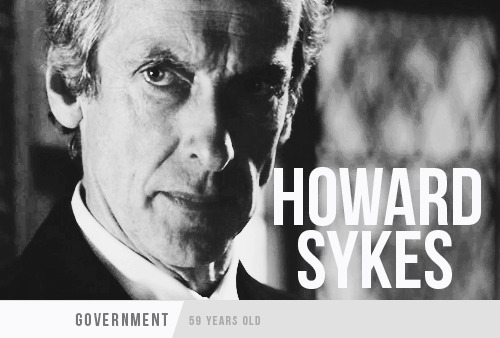
HOWARD SYKES is 59 and is portrayed by PETER CAPALDI. He is currently TAKEN.
Designation: government
Occupation: member of Parliament’s House of Commons
KEY FACTS
One of the many politicians on the Organization’s payroll.
Pursuing the Chief Whip position (and, as an extension, the Parliamentary Secretary to the Treasury) for both the power it has and for the added benefit for the Organisation.
Primarily acts in own self-interest, and has stepped on the Organisation’s toes once or twice before if it was beneficial for himself.
BIOGRAPHY
Born on a rainy day in Glasgow, Scotland, Howard Thomas Sykes was the first child to a teacher and a homemaker. Life was good as an only child, until three years later when his sister was born. Howard was never good at sharing. While his sister absorbed all of the attention, he was left to sulk and brood. He was always tasked with looking out for her, especially at school where older kids liked to pick on younger ones as if they were prey in the Savannah. There were more than a few times he come home with a black eye, but it was better than receiving the back of his father’s hand.
Howard always knew he wanted to hold power over people. He saw it in school; those damned idiots who thought that being class representative was the absolute best thing ever were delusional. They didn’t really have any power. And who the hell wanted to have control over a bunch of zit faced, hormonal air heads? But, he learned to be mindful of them anyway, because extra trouble was never good. He kept his head low, but quietly observed the naivety and school politics that filled the hallways.
He went to a local university, because his parents couldn’t afford to send him abroad and he hadn’t saved enough to get the hell out. Toughing it out for four years was easier than he thought it was going to be, and that was mainly because he got live in a dorm and not with his parents. He made friends, although he considered them more as strategical friends than true friends. His desire to break free from his family drove him to get close to people who could help him get a foot into politics. Politics, he believed, is where he could excel. He got his degree in English history and went on to law school, although he never actually practiced law.
Having grown up during the Cold War and the threat of communism, he learned that power wasn’t always about money. Money helped, but if the mob was on your side, it didn’t matter how much money there was involved. Angry people were the best weapon. Much like the kids from school, he soon realized that humans could be easily swayed by empty promises, so long as they felt they were doing well in life.
Howard moved from Scotland to London when he was twenty-two and decided to run for the small district that he’d made his home. He remembers his first win; the thrill and high he felt from it. It was tough campaigning and listening to one woe story after another, but it had been worth it. Though he could hardly care about the regular people, he knew he needed to do a decent enough job to keep their votes. Governing his small district posed its own challenges, namely that as a small MP, he held little power. Because of that, he lost interest in governing the small district, and he set his eyes on something much better. The slight career change meant that he started near the bottom rung again, but experience as a district MP (however small), helped him to climb the ladder.
In his personal life, he was married to a woman for nearly fifteen years. She was a nice person, almost too nice for his liking. What had drawn him to her and vice versa is still something of a mystery to him. He supposed that she was good for when he was campaigning to be the MP of their district, for she was personable and people liked her. However, she wore on him like sandpaper to a block of wood; mainly she didn’t like what his new job working for and as a Whip entailed. She’d called him a bully, not that he cared. It’s a wonder that he was married to her for that long; thank god they didn’t have kids, as that would have made things much messier during the divorce. He proposed the idea, seeing as she probably would have stayed otherwise. She had agreed, although not without a lot of persuasion.
As a Whip, he found that he really enjoyed knowing some of people’s deepest and darkest secrets. He relished being the guillotine hanging above their heads, threatening to chop their heads off if they didn’t get in line and do as he told them to do. Because he wasn’t physically intimidating, Howard learned to be intimidating in other ways by relying on charm and carefully crafted threats. He made sure to never make any empty threats and to always deliver on punishment, but at the same time, reward for good behavior. Howard doesn’t believe fear makes people loyal, but it can certainly help. His no nonsense and seemingly fair solutions have earned him a reputation for being one of the top go-to guys in times of trouble or crisis. Of course, he always keeps a list of who owes him what and when to leverage them.
His skills, he figured, was what drew the attention of the Organization. He was approached by an MP who had been instructed to talk to him. The offer was tempting, for the Organization promised to help him with his political career in exchange for helping them push certain parts of their agenda. He’d heard about the Organization, but only in passing. They wanted someone who was intelligent and discreet to help influence Parliament, so he agreed. Howard didn’t particularly care which way Parliament went politically; he just wanted to get further up the ladder. The Organization did help him rise in seniority and be in prime position to become Chief Whip, but he doesn’t feel much obligation toward them. Though he’s stepped on their toes a few times, Howard is careful about how much he does; after all, he doesn’t want to jeopardize his inevitable promotion.
PERSONALITY
+ intelligent, persistent, observant, resourceful, and strategic
- secretive, ruthless, intimidating, calculating, and arrogant
RELATIONSHIPS
Amelia Blackshaw— has heard the whispers of the ties this new politician has to the Organisation, and is wary of Amelia’s fast rise to success. Afraid he’s losing the Organisation’s trust as well as his personal safety, Howard is polite to Amelia’s face and looks for ways to tear her down behind closed doors, like a classic politician.
Lachlan Hall— Howard’s past stances on zoning and land laws, as well as attempts to curry favor with the public by condemning aggressive landowners and evictions, have caused serious friction with Lachlan. The two are not on good terms by any means, and while he is aware the man is a member, Howard is ignorant as to how high Lachlan really stands in the Organisation.
Georgia Dahl— his secretary. She does her work and she does it well enough, although Howard always, of course, wants someone better. Still, she’s useful, and given that she’s not completely ignorant of his affairs with the Organisation, he’s not comfortable just letting her go. It’d require some finesse — like with his last secretary.
Olivia Sharma— another irritating Organisation member, this one is attempting to get Howard to push certification processing so the Organisation can start monopolizing the private medication sector. Howard insists there’s nothing he can do about that, but she’s even more persistent. She’s more of an aggravation than anything else, but given who she works for, he can’t simply brush her off.
#peter capaldi fc#original rp#mature rp#crime rp#mob rp#all#open#government#male#howard sykes#taken#taken male#taken government
1 note
·
View note